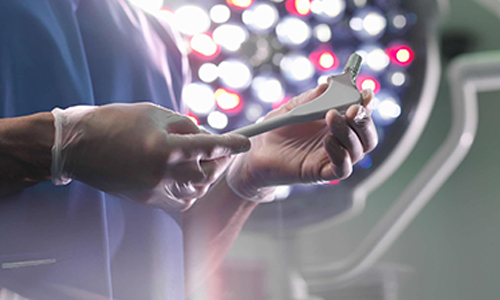Oxford Performance Materials targets Asia after 3D printed medical devices approved in Japan
March 22, 2018
Source: 3Ders
 864
864

Oxford Performance Materials, a company whose materials have been used in everything from medical implants to Boeing airplanes, has been given the green light to distribute its 3D printed medical devices in Japan, paving the way for major expansion within Asia.
Making a 3D printed medical implant—designing it, sourcing the right materials, performing the necessary medical testing—is no mean feat, but for some companies in the medical field, making such a device is actually only a small step on the road to commercialization. The trickiest part comes later.
That’s because, for a 3D printed medical device to have any value, it needs to be approved by governmental organizations. In the U.S., the FDA performs that role, examining individual products to see if they meet the necessary standards for use on human bodies.
To this end, the FDA recently published its guidance on 3D printing of medical products in order to tell manufacturers what it is looking for in a product.
Connecticut’s Oxford Performance Materials (OPM) is one company that has frequently found itself dealing with the FDA in order to bring its specially designed PEKK (poly-ether-ketone-ketone) medical implants to market. The company’s OsteoFab implants are some of the industry’s most popular, and OPM has had several different implants given 510(k) clearance by the FDA.
That’s the U.S., but what of other markets? While some countries are relatively skeptical of 3D printing and in no rush to approve products that might go wrong down the line, others are taking a different tact. In Korea, for example, Ministry of Food and Drug Safety has explored fast-track options for 3D printed medical devices in order to get the technology developed faster. It’s a risky tactic, of course, but one that can benefit the national economy.
Elsewhere in Asia, Japan remains an influential figure in the medical device market. A famous advocate of new technologies, Japan can massively boost a medical device company’s profile by rubber-stamping its products for medical use.
Fortunately for OPM, Japan’s Ministry of Health, Labour and Welfare has just granted the American company Accreditation of Foreign Medical Device Manufacturer, permitting it to bring its laser melting OsteoFab 3D printed medical device options to the prosperous Asian nation.
OsteoFab combines laser melting additive manufacturing technology with OPM's proprietary OXPEKK material formulations to offer 3D printed PEKK medical implants for craniomaxillofacial (CMF), spine, and other emerging orthopedic and neurologic indications.
OPM says it has long identified Asia as an attractive market because of “demographic trends and a predictable regulatory and reimbursement environment.” The company also believes that Japanese healthcare companies have an appreciation for beneficial technologies.
“OPM started regular exploration of the Asian market 10 years ago in order to deeply understand the reimbursement environments, potential markets and commercialization opportunities,” said Scott DeFelice, Chief Executive Officer and Chairman of the Board of Oxford Performance Materials. “This accreditation allows OPM to start an export program to initiate market development and advance our Asian business.”
By DduRead more on
- Join Drugdu.com’s Online Medical Devices Exhibition to Discover Global Trading Opportunities September 3, 2018
- 3 Ozone Generators for Improved Health August 30, 2018
- Prototype for ‘Bionic Eye’ Created with 3D Printer August 30, 2018
- Basic Surgical Instrument – Extraction Forceps August 30, 2018
- Forehead Thermometers, a Better Option! August 29, 2018
your submission has already been received.
OK
Subscribe
Please enter a valid Email address!
Submit
The most relevant industry news & insight will be sent to you every two weeks.



